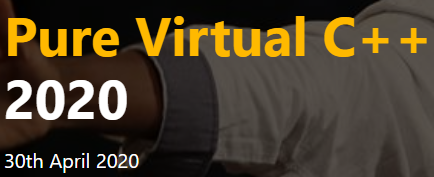A first look at COVID-19 and Meeting C++ 2020
What events in Fall might look like, a first look at Meeting C++ 2020
A first look at COVID-19 and Meeting C++ 2020
by Jens Weller
From the article:
With this news entry I want to give you an overview on the current situation with this years Meeting C++ conference regarding the ongoing pandemic.
In the early stages of the outbreak...

 Reminder: In less than 24 hours, we'll have a worldwide C++ event:
Reminder: In less than 24 hours, we'll have a worldwide C++ event: